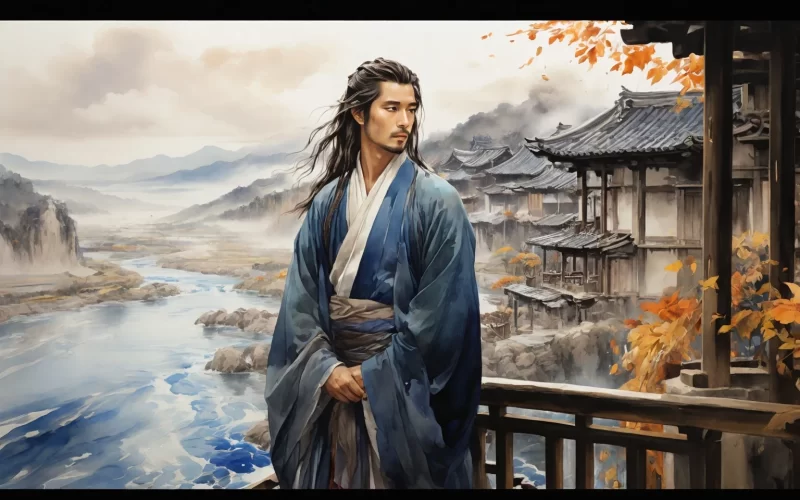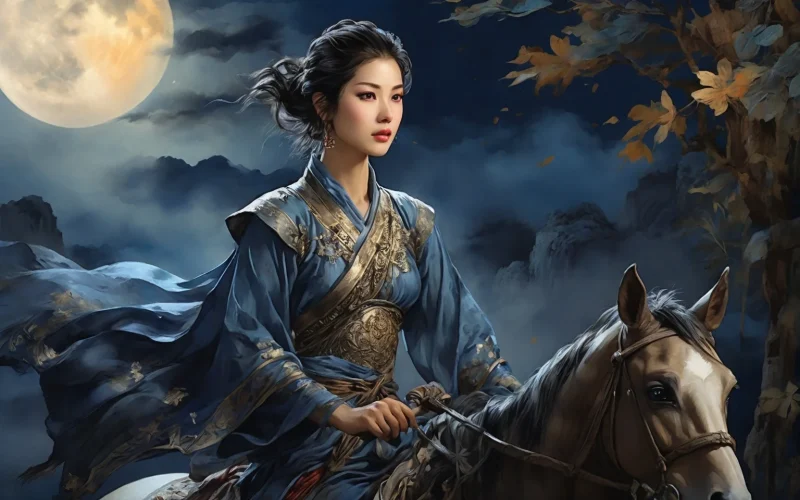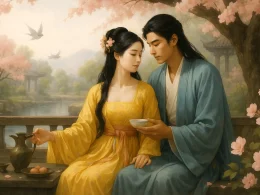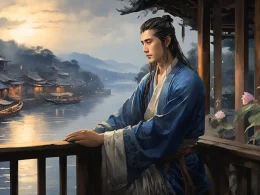A hero can't foretell victory or defeat.
Why should a loser not stand again on his feet?
There are so many talents on the Southern shore.
Who dare say, once defeated, he can't win the war?
Original Poem:
「题乌江亭」
杜牧
胜败兵家事不期,包羞忍耻是男儿。
江东子弟多才俊,卷土重来未可知。
Interpretation:
This poem was written by Du Mu in the first year of the Huichang era (841 CE) when he was appointed the governor of Chizhou. While passing by Wujiang Pavilion, Du Mu reflected on the historical Chu-Han War, using the defeat of Xiang Yu as a starting point to express his thoughts on the vicissitudes of history and individual fate, and to ponder the heroism and failure.
First Couplet:“胜败兵家事不期,包羞忍耻是男儿。”
(Victory and defeat are inevitable in warfare, unpredictable; only those who can endure shame and humiliation are true men.)
These lines emphasize the unpredictability of victory and defeat in history. True heroes are defined by how they face failure and disgrace. Rather than yielding to temporary setbacks, they must have the courage to endure pressure and rise again.
Second Couplet:“江东子弟多才俊,卷土重来未可知。”
(The young men of Jiangdong are full of talent; whether they can rise again and achieve victory remains unknown.)
Du Mu suggests that the youth of Jiangdong have the potential to regroup and rise again. If Xiang Yu could endure the humiliation and shoulder the burden, the outcome of the war might not have been decided. This line hints that the turning point in life sometimes comes from standing up again after a fall.
Writing Features:
- Combination of Reality and History: By reflecting on Xiang Yu's failure, the poet ties historical events and the unpredictability of war to propose that history is not predetermined and that victory and defeat are never certain.
- Criticism and Insight: Du Mu not only critiques Xiang Yu for failing to reflect on his defeat but also offers the philosophical advice of “bearing shame and humiliation” as a way to cope with failure, showing the importance of both historical lessons and personal choices.
- Direct and Profound: The poem uses straightforward language, making historical experiences easy to understand and conveying deep thoughts clearly.
Overall Appreciation:
Du Mu reflects on and critiques Xiang Yu’s defeat in the context of the historical Chu-Han conflict, emphasizing the importance of "bearing shame and humiliation." By proposing the hypothetical possibility of Xiang Yu rising again, the poet shows that failure does not necessarily determine the outcome. The poem is concise and powerful, directly conveying the courage needed for reflection and rebirth after failure. It also touches upon themes of heroism and the battle against fate. Through both historical criticism and life philosophy, the poet warns against despair in the face of failure and encourages the courage to start again.
Insights:
This poem, through a reflection on historical events, emphasizes the mindset and strategies needed when facing failure. By evaluating Xiang Yu’s actions, Du Mu conveys an important lesson: no matter the circumstances, only by facing failure courageously and bearing humiliation can one rise from setbacks and find opportunities to fight back. Du Mu suggests that success or failure in history depends not only on battlefield outcomes but also on an individual's perseverance and wisdom in facing adversity. The poem serves as a reminder that failure is not the end; the key lies in adjusting one’s mindset, regaining confidence, and moving forward.
Poem translator:
Xu Yuan-chong (许渊冲)
About the poet:
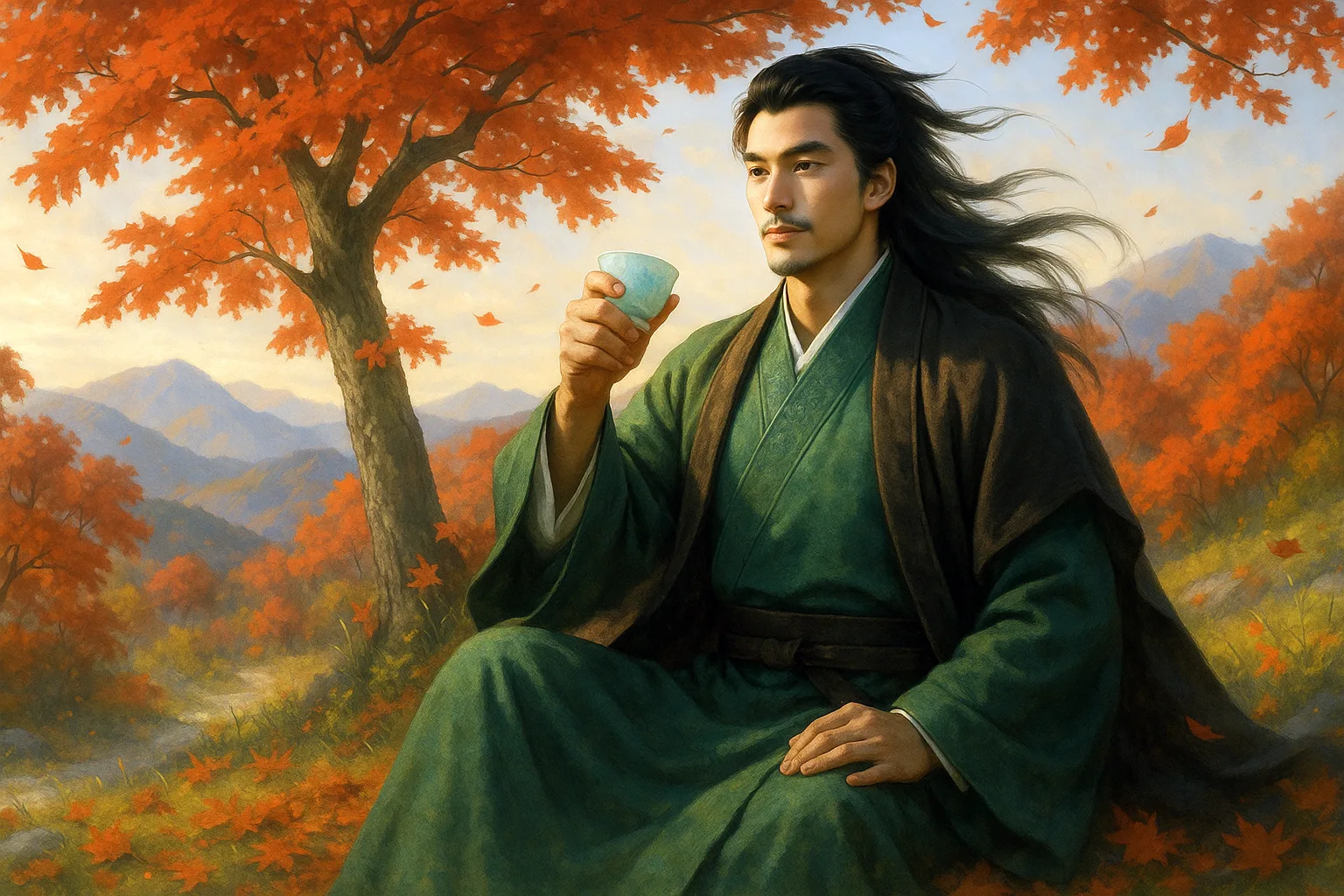
Du Mu (杜牧), 803 - 853 AD, was a native of Xi'an, Shaanxi Province. Among the poets of the Late Tang Dynasty, he was one of those who had his own characteristics, and later people called Li Shangyin and Du Mu as "Little Li and Du". His poems are bright and colorful.







